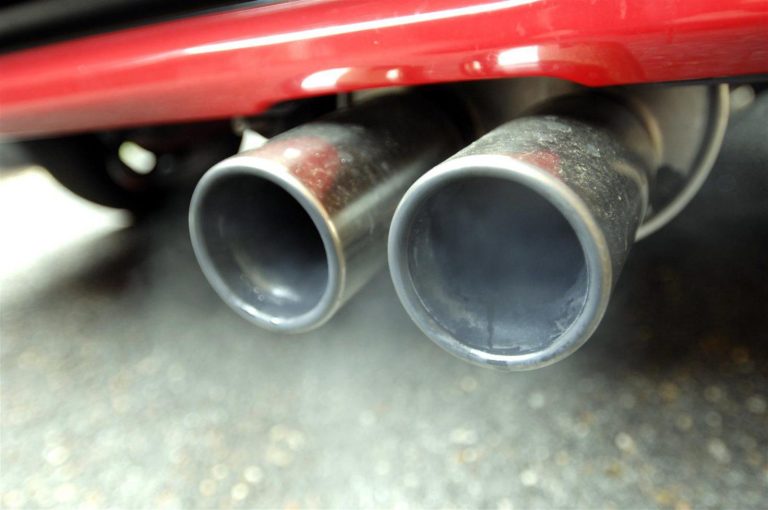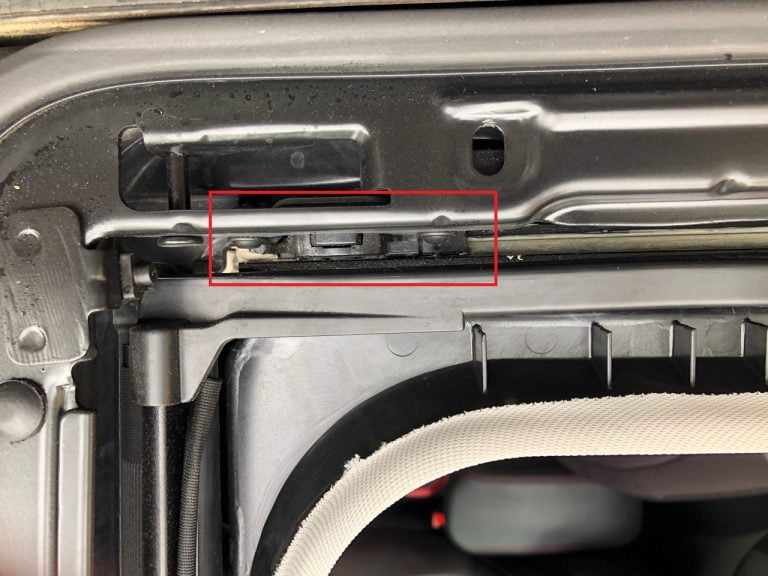Can Bad Oil Cause Your Car to Stall Unexpectedly?

Did you know that something as simple as bad oil could cause your car to stall unexpectedly?
It may sound surprising, but the quality of your vehicle’s oil plays a vital role in keeping your engine running smoothly.
In this article, we will explore the effects of bad oil on your car and the warning signs to look out for.
So if you want to avoid any sudden stalling incidents on the road, keep reading to find out more.
Can Bad Oil Cause Car to Stall?
Yes, bad oil can cause a car to stall.
When the oil in a car becomes dirty or contaminated, it loses its ability to properly lubricate the engine components.
This can lead to increased friction and heat within the engine, causing it to stall.
Additionally, bad oil can clog the engine’s oil passages, leading to a lack of oil flow and potential engine damage.
It is important to regularly change the oil in a vehicle to avoid these issues and ensure proper engine performance.
Key Points:
- Bad oil can cause a car to stall by decreasing its ability to lubricate the engine components.
- Increased friction and heat within the engine can result in stalling.
- Bad oil can clog the engine’s oil passages, leading to a lack of oil flow and possible engine damage.
- Regularly changing the oil in a vehicle is crucial to avoid these issues.
- Dirty or contaminated oil loses its lubricating properties, leading to potential engine problems.
- Proper engine performance is dependent on the regular maintenance of oil changes.
Check this out:
https://www.youtube.com/watch?v=SD9BJsnukjc
💡 Did You Know?
1. Contrary to popular belief, bad oil can indeed cause a car to stall. When engine oil becomes old, contaminated, or low in quantity, it loses its lubricating properties. As a result, the various engine components experience increased friction, leading to overheating and potential engine stall.
2. In some cases, bad oil can also cause issues with the engine’s variable valve timing (VVT) system. The VVT system relies on proper oil flow and pressure to adjust the engine’s valve timing. If the oil is obstructed or degraded, the system may fail to function correctly, which can result in a car stall.
3. Over time, bad oil can lead to the formation of sludge inside the engine. As sludge accumulates, it restricts the flow of oil to crucial parts, such as the pistons, bearings, and camshafts. Insufficient lubrication due to sludge buildup can cause the engine to stall when its moving components seize or experience excessive friction.
4. Cold weather can exacerbate the negative effects of bad oil on engine performance. When oil thickens in low temperatures, its flow becomes sluggish, hindering its ability to reach engine components promptly. This compromised flow can lead to inadequate lubrication, increased wear, and ultimately stall the engine.
5. If your car stalls due to bad oil, it’s essential to address the issue promptly to prevent further damage. Continuing to drive with poor oil quality can result in permanent engine damage, leading to costly repairs or even requiring a complete engine replacement. Regularly maintaining your car’s oil quality and adhering to recommended oil change intervals are vital for preventing stalling and ensuring the engine’s longevity.
Importance Of Timely Oil Changes
Keeping up with regular oil changes in your car, truck, or SUV is crucial for maintaining its overall performance and longevity. Failing to change the oil in your vehicle can have severe consequences, one of which is the possibility of your car stalling unexpectedly.
Oil plays a vital role in lubricating the engine’s moving parts and keeping them cool, clean, and protected. Over time, oil breaks down and becomes less effective at performing its job. This degradation can lead to engine damage and potentially cause your car to stall.
Alert Systems In Modern Vehicles
Modern vehicles are equipped with sophisticated alert systems that monitor various aspects of the car’s performance. These systems have sensors that can detect the condition of the oil and alert the driver when it is time for an oil change. Typically, a maintenance light or warning message will illuminate on the dashboard to indicate that the oil change is due. By paying attention to these alerts and promptly scheduling an oil change, you can prevent issues such as stalling caused by bad oil.
Oil Change Frequency For Older Vehicles
If you have an older vehicle, it may not have the advanced alert systems found in modern cars. In these cases, it is generally recommended to change the oil every 3-6 months, depending on your driving habits and the type of oil you use. Frequent oil changes are particularly important for older vehicles because the engine components may have more wear and tear. Neglecting to change the oil within the specified time frame can result in oil degradation and the potential for stalling or seizing of the engine.
Sign 1: Low Oil Level
One of the signs that your vehicle is due for an oil change is a low oil level. You can check your oil level by using the dipstick, which is typically located near the engine. If the oil level is significantly below the recommended level, it indicates that your car is running low on oil.
Insufficient oil can lead to friction and heat buildup in the engine, potentially causing it to stall unexpectedly.
- Low oil level is a sign that your vehicle needs an oil change.
- Use the dipstick to check your oil level.
- Insufficient oil can cause friction and heat buildup in the engine.
- This can lead to the engine stalling unexpectedly.
“Insufficient oil can lead to friction and heat buildup in the engine, potentially causing it to stall unexpectedly.”
Sign 2: Dark, Dirty, Or Milky Oil
Another indication that your vehicle needs an oil change is if the oil appears dark, dirty, or milky. Fresh engine oil is typically a transparent amber color. However, as it ages, the oil can become contaminated with dirt, debris, and engine byproducts. This contamination can affect the oil’s lubricating properties, leading to increased friction and engine wear. Moreover, if the oil appears milky, it may indicate a coolant leak, which can cause further engine damage and may result in stalling.
- Dark, dirty, or milky oil indicates the need for an oil change.
- Fresh engine oil is transparent amber in color.
- Aging oil can become contaminated with dirt, debris, and engine byproducts.
- Contaminated oil can lead to increased friction and engine wear.
- Milky oil may signal a coolant leak, which can cause additional engine damage and potential stalling.
Remember, regular oil changes are crucial for maintaining the health and performance of your vehicle.
Sign 3: Smell Of Burning Oil
If you notice a distinct odor of burning oil while driving, it is a clear indication that an oil change is overdue. When oil breaks down and becomes less effective, it can cause the engine to overheat. This overheating can lead to oil leaking onto hot engine components, resulting in the smell of burning oil. Ignoring this issue can result in:
- Further engine damage
- Reduced performance
- Stalling of the engine
Sign 4: Decreased Fuel Efficiency
Bad oil can have a detrimental effect on your vehicle’s fuel efficiency. When oil becomes worn and dirty, it generates increased friction in the engine. This added friction forces the engine to work harder, ultimately leading to a decrease in fuel efficiency. If you observe a sudden decrease in your vehicle’s miles per gallon (MPG), it may indicate that your oil needs to be replaced. Ignoring this matter can result in more serious complications, such as engine stalling.
- Bad oil negatively impacts fuel efficiency
- Worn and dirty oil increases friction within the engine
- Increased friction causes the engine to work harder
- Decreased fuel efficiency is a potential consequence
- Sudden drop in MPG signals the need for an oil change
- Ignoring this issue can lead to engine stalling
It is crucial to address oil-related issues promptly to prevent further damage.
Sign 5: Stalling Or Seizing Engine
Bad oil can cause your car to stall if it fails to properly lubricate the engine’s moving parts. This can lead to increased friction and heat buildup, potentially causing engine components to lock up or become damaged. A seized engine is a serious and expensive issue that can bring your vehicle to a sudden stop. To prevent engine stalling, it is crucial to regularly change the oil in your car and ensure proper lubrication.
FAQ
What are the symptoms of bad engine oil?
When engine oil is not functioning effectively, several symptoms can indicate a problem. One notable symptom is increased engine noise. As the oil fails to provide sufficient lubrication, the engine components start to rub against each other, resulting in heightened noise levels. In more severe cases, the engine may emit knocking or rumbling sounds, indicating a critical lack of lubrication that can lead to irreversible damages and the gradual destruction of the engine.
Can bad oil cause the car to lose power?
Yes, the use of low-quality or contaminated oil in a car can indeed cause a loss of power. When the oil becomes degraded or contaminated, it can create a buildup of deposits that can hinder the smooth movement of the engine’s components. As a result, the engine may experience reduced power, leading to difficulties in acceleration, climbing hills, and maintaining high speeds. It is crucial to regularly replace the oil with a high-quality lubricant to ensure optimal engine performance and prevent power loss.
Can a bad oil filter cause stalling?
Yes, a bad oil filter can indeed cause stalling in a vehicle. When the oil filter becomes clogged or blocked, it can lead to issues with camshaft timing and hydraulic valves, causing difficulty in starting the engine. Additionally, a clogged oil filter restricts the flow of fuel to the engine, leading to overheating and ultimately stalling of the vehicle. Thus, it is crucial to regularly maintain and replace the oil filter to prevent such problems from occurring.
Can low oil cause rough idle and stalling?
Yes, a low oil level can indeed lead to a rough idle and stalling. Motor oil plays a crucial role in lubricating the moving parts of the engine, preventing friction and heat buildup. When oil levels are low, there is inadequate lubrication, leading to increased friction and strain on the engine components. This can result in reduced engine performance, manifesting as a rough idle and even stalling. Additionally, low oil pressure can disrupt the optimal functioning of various engine systems and negatively impact fuel economy, further contributing to these issues.




